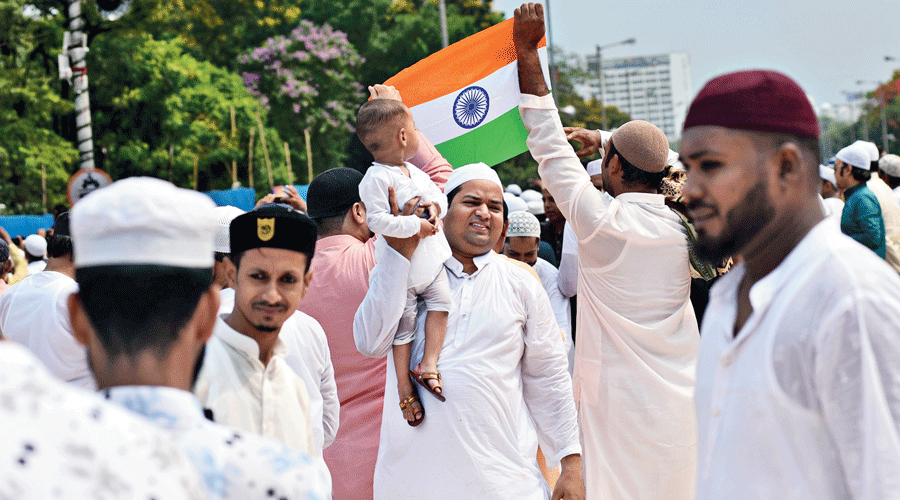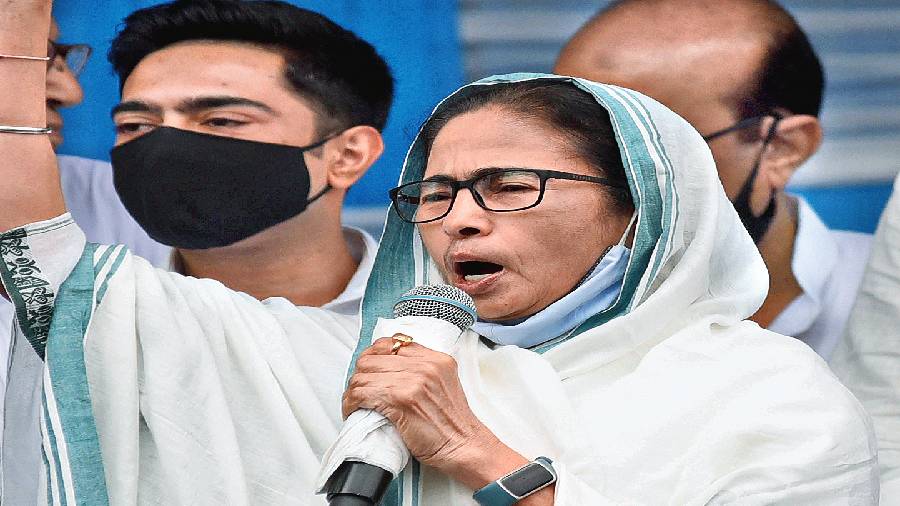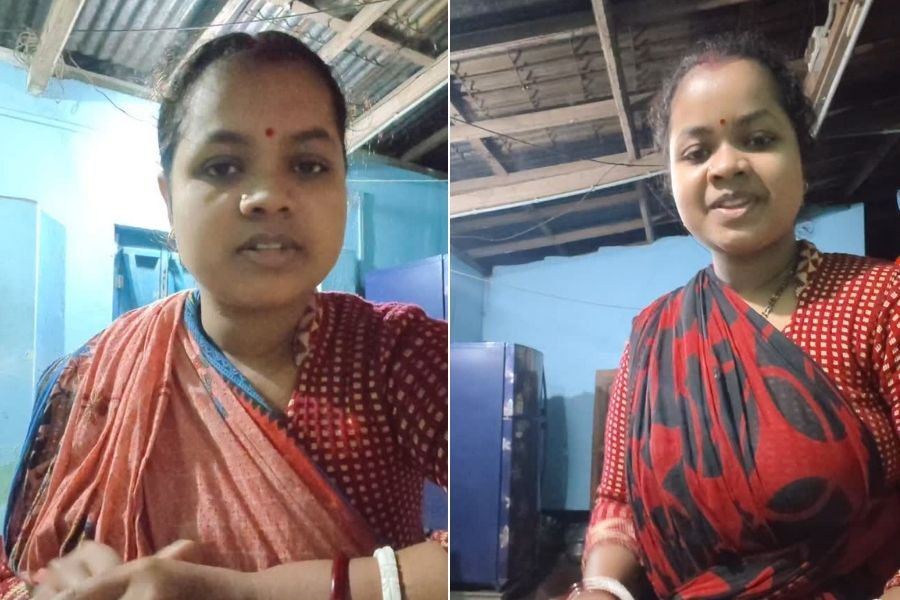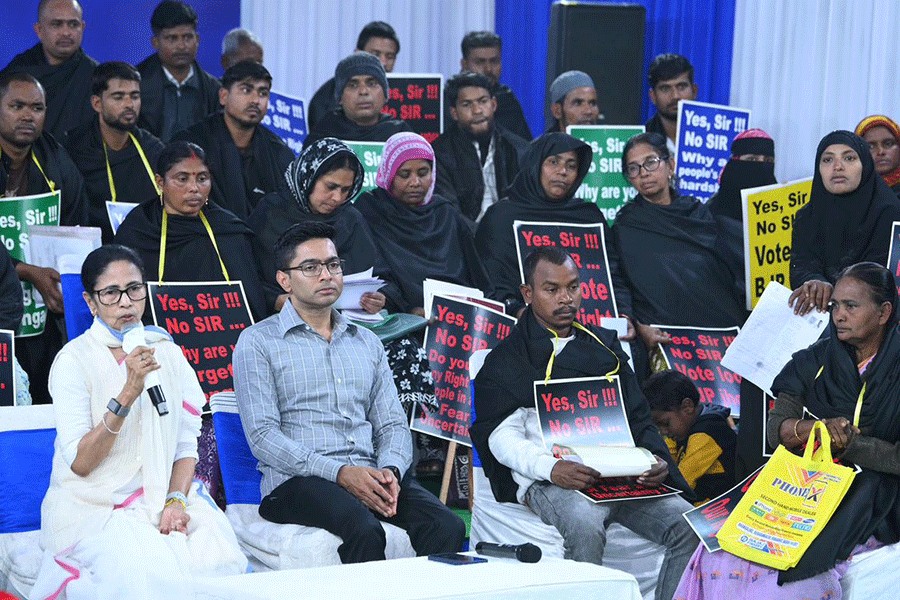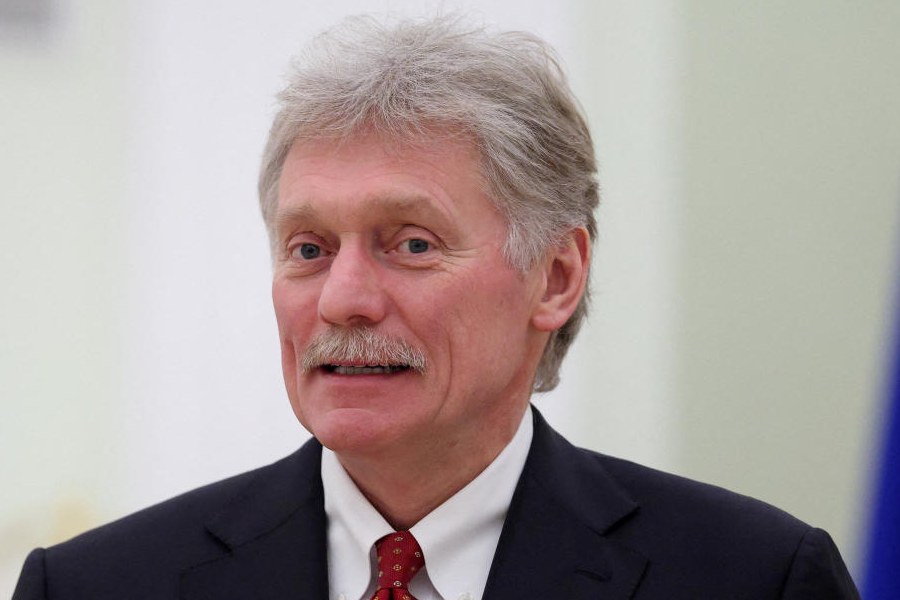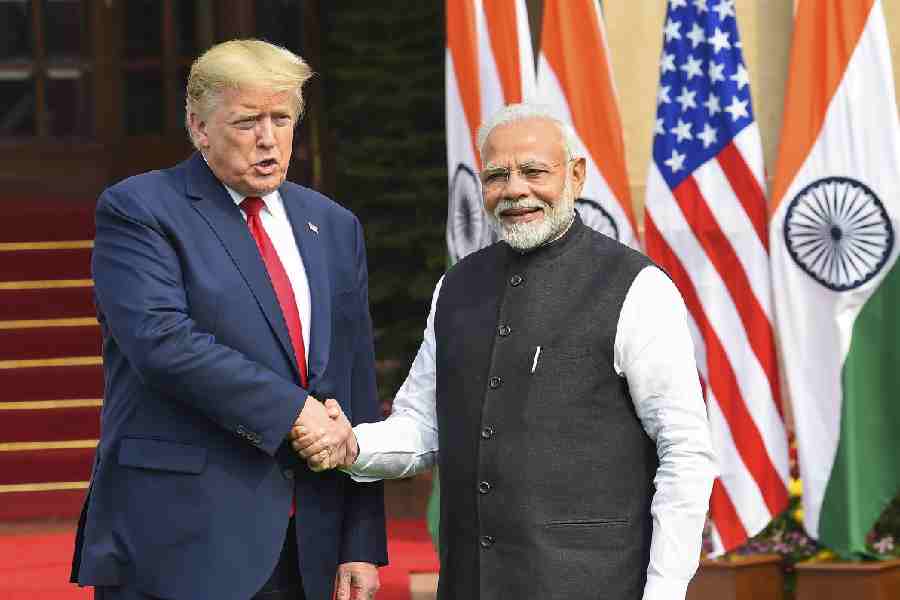Yun toh humne kai ghazal, kai kahaani likh diya
Watan ke naam humne apni zindagani likh diya
Aur jab logon ne poochha pehchan humari
Humne uthaya kalam aur Hindustani likh diya.
I’ve written many songs and many stories
Have written my life in the name of the nation
And when some asked me for my identity
I took up a pen and wrote Indian.
Young poet Muhammad Tausif Alam says he is tired of proving his Indian identity.
When Tausif met this correspondent on Red Road, where he reached on Tuesday morning for the Id prayers, the resident of the Cossipore-Belgachia area in north Calcutta introduced himself as a proud Indian.
Then he added: “Listen to this poem.… It explains what I feel.”
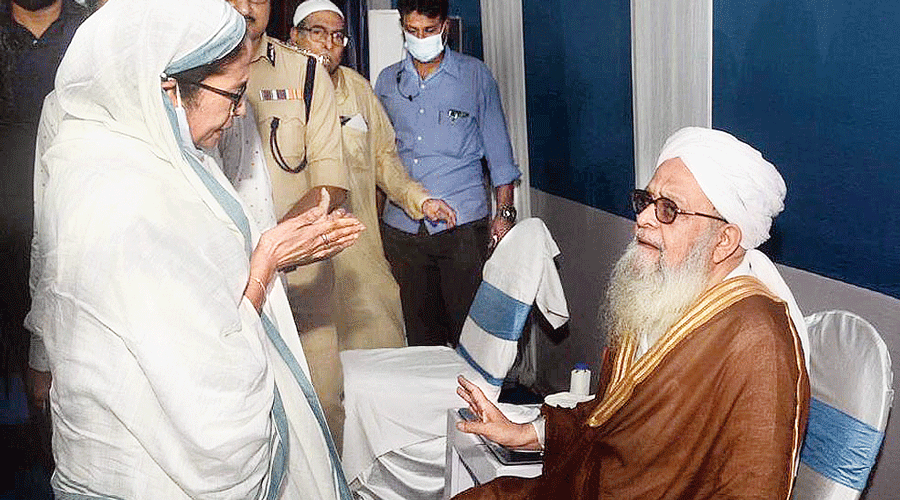
Chief minister Mamata Banerjee greets Qazi Fazlur Rahman. Bishwarup Dutta
The poet said that proving their Indian identity has never been as challenging before for the 200 million-plus Muslims in the country, one of the world’s largest Muslim populations but a minority in an India whose very idea has undergone a metamorphosis in recent years.
Tausif, whose name means “one who should be praised” in Arabic, said event after event unfolding around him offers little that warrants praise.
A wound still raw is how members of his community were accused of intentionally spreading the Covid-19 virus.
“Why would we do so? Why would we want such menace for our own countrymen?” Tausif asked, referring to the reckless behaviour of some members of the Tablighi Jamaat in Delhi before the full reach of the virus in India was gauged.
The vile insinuations had trickled down from the capital to closer home, the poet said, adding that “Belgachia ko badnaam kar diya (Belgachia got a bad name)”.
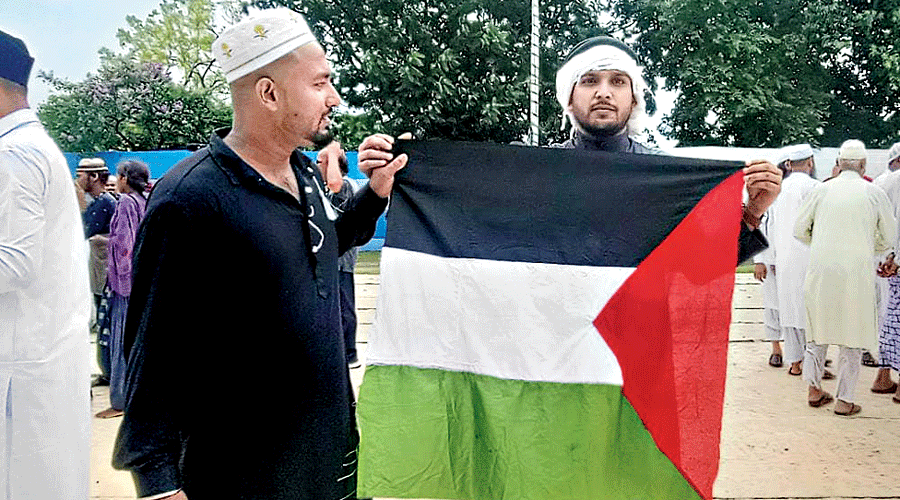
Tausif holding the Palestine flag. Bishwarup Dutta
“I’ve seen how poor vegetable sellers and fruit vendors had to pay a price because of this campaign,” he said.
A series of events in the past few years — systematic targeting of Muslims, lynchings, violence against Dalits and Adivasis, the bulldozing of Muslim property in multiple BJP-governed states — compelled him to write more, and the poem on his Indian identity was born out of this pain.
“This poem is not just about Muslims. This is about the Dalits as well. All the Hindu lower caste people as well. It is for all the downtrodden people who have been asked to prove their identity in their own country,” Tausif said, adding that one of his other poems, Haal-e-Hind (The State of India), resonates with the anti-CAA movement.
A few steps away, friends Sarwar Ali and Yusuf Aga were standing with the Tricolour. The held the flag high above their heads when chief minister Mamata Banerjee was addressing the gathering.
Were the two trying to prove their Indian identity at the venue, barely a few hundred metres from Eden Gardens where thousands wave the Tricolour without being asked their motive?
“This is not the first time that we have come here with Indian flag.… We carry the flag as we consider ourselves as proud Indian Muslims and we send this message all across the globe,” Ali said.
His friend Aga had a wry smile while recounting how he had to prove loyalty to India “so many times” and the innuendoes and suspicious glares from “fellow Indians”.
“I say ‘Bharat Mata ki Jai’, ‘Jai Shri Ram’. Why wouldn't I? It is our tradition,” Aga said, explaining his stand on some of the common chants that the saffron ecosystem has turned into war cries.
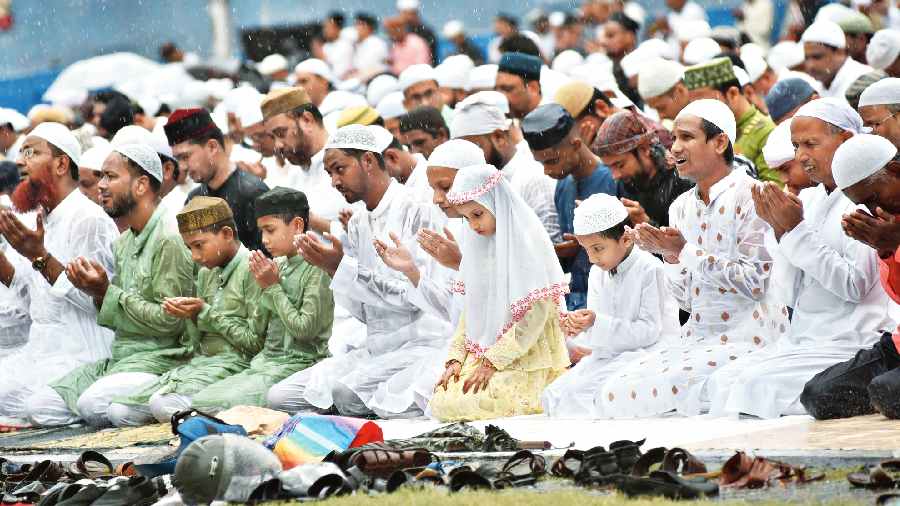
Eid prayers on Red Road amid showers on Tuesday morning. Bishwarup Dutta
“I have a problem only when someone tries to impose something on me…. We want to live in peace,” added the young man, holding the Tricolour close to his chest.
This message of peace and harmony resonated across Red Road on Tuesday as over 14,000 Muslims joined the prayers. Qazi Fazlur Rahman, the cleric who was in charge of administering the prayer on behalf of the Calcutta Khilafat Committee, urged the gathering to do its best to bridge the gap between communities.
“Hindus and Muslims in India are not separate. Some people are trying to divide us. Bridge the gap with your Hindu brothers. Invite them to your houses on Id, share your food with them. Go to their houses on their festivals,” Rahman said in his address.
For Tausif, the message of peace was the best takeaway from the prayers, where he had come with a Palestinian flag.
“When the Muslims in Bengal are celebrating Id joyously, the Muslims of Palestine are under the oppression of Israelis.… This flag is to show solidarity with them. ‘From the river to the sea, Palestine will be free’,” the poet recited.
The Red Road namaz has always been a remarkable yet regular feature of the city. However, on Tuesday — when the event was held after a two-year hiatus enforced by the pandemic — it turned out to be a platform for several members of the minority community to raise their voices against the oppression of the divisive forces and proclaim their identity as Indians.

